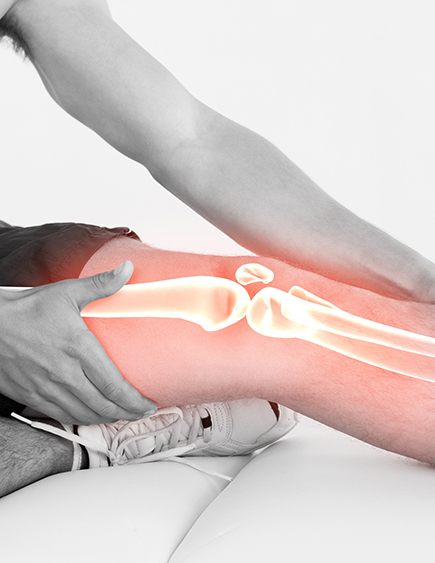The Best Methods for Knee Injury Treatment | Knee Pain Doctor Explains
What is the best knee injury treatment?
Maybe you’ve had a sudden, sharp pain after some vigorous exercise. Or you lie awake every night, trying to ignore the chronic, dull pain that’s been bothering you for ages. Almost a 100 million Americans suffer from knee joint pain each year. If you’re one of them, you’ve probably thought, “Oh my God! Do I have to get that knee replacement surgery done?” The answer is… probably not. Several knee conditions, especially in the beginning respond to conservative treatment.
So, when should you opt for these, and when should you see that pain doctor? Read on to learn about the best treatments available, and the pain clinic with them available/covered by all major medical insurances and Medicare.

RICE – Rest, Ice, Compression, Elevation
This is the first-line knee injury treatment, and is ideal if you’ve just had a minor injury, or your arthritis is especially painful. Rest your knee and avoid strenuous exercises for a few days. Apply ice packs around the injured knee joint to bring down the swelling. You should ice the joint for at least 15 minutes every four hours till the pain and swelling come down. Use elastic knee supports such as bandages or sleeves to compress the knee joint, and keep the injured knee elevated to reduce the swelling further.
Walking aids
Using crutches can go a long way in reducing the strain felt by your knee joint till it heals. Knee braces stabilize your knee joints and protect them from further injury. Orthotics (shoe inserts) also reduce strain on the knee joint by controlling excessive movement at the feet.
Over the counter painkillers
In the short term painkillers like ibuprofen and aspirin may help reduce the pain and swelling in your knee joint. Be cautious about the dosage though, and stay within the recommended daily limits on the bottle! If you find yourself reaching for pain pills too often, it’s time to resort to other methods.
Physical Therapy
Depending on the kind of knee injury that you have, exercises can be designed to strengthen your joint, eliminate stiffness, and improve the range of motion.
Knee injections
Different medications can be injected into your knee. Corticosteroid injections help bring down inflammation within the knee. Lubricants, such as hyaluronic acid can be injected to improve smoothness of motion and increase shock absorption. For severe pain, local anesthetics can also be injected to numb the nerve responsible for the pain sensation.
Cold therapy
Applying sub-zero temperatures to the knee joint can relieve pain. The Iovera, one of the modern devices used in knee injury treatment, uses this principle to calm pain and swelling in the knee joint.
Arthrocentesis
In this procedure, also known as ‘joint aspiration’, the pain doctor removes excess inflammatory fluid from your joint using a syringe. Through the same needle, you may get an injection of steroids or lubricants.
Nerve manipulation or Genicular Nerve Block
The genicular nerves are responsible for pain sensation in the knee joint. In cases of severe or chronic pain, these nerves can be numbed using local anesthetics.
Radiofrequency Thermoablation
The nerve can also be desensitized using radiofrequency thermoablation. This is especially effective in chronic pain which has not responded to other methods of treatment.
Prescription Medications
Apart from prescription painkillers and anti-inflammatory drugs, a pain doctor might evaluate whether or not you need disease modifying anti-rheumatic drugs (DMARDS), to slow down the progress of degenerative joint diseases.
Surgery? The last resort!
When all else fails, it may be necessary to physically repair whatever’s been damaged in your knee joint.
Arthroscopic surgery
Here, knee injury treatment is done using a scope (a tube with a camera) inserted into the joint, in the front of the knee. This minimally invasive procedure can help repair and rebuild ligament tears, including a torn meniscus and anterior cruciate ligament tears
Open surgery
When the joint is damaged beyond repair, it may be time to replace it. Partial and total joint replacements are often carried out with great success, but these procedures should absolutely be the last resort.

But how do you choose the best treatment for you?
The key is in choosing the right kind of treatment from the exhaustive list above. So what should you apply when?
Signs you can get away with home remedies
Minor injuries and inflammatory conditions can be managed at home. Some of the common knee injuries include meniscus tears, anterior cruciate ligament (acl) tears, and ligament sprains. Degenerative and inflammatory conditions such as osteoarthritis and bursitis can also be managed to a large extent by conservative therapy including RICE, walking aids, and over the counter medications.
Signs you need to go to a pain treatment clinic
Obviously, if conservative treatments didn’t provide much relief, it’s time to seek help. A pain doctor would be the best person to guide you on treatment options, as they are trained to spot the exact cause of your knee pain. With some of the leading pain doctors in NY, our team of specialistsis sure to offer you the most appropriate among the above options, depending on your body’s needs. If you do need surgery, our pain doctors in NJ and NY will offer the best kind of surgery to suit you, and decide whether an arthroscopic or open approach is the best.
Signs you need to get to a doctor right away
If you’ve had direct trauma to your knee, it’s best to get to the emergency room right away, in case you have a fractured or dislocated knee. Signs that you need immediate knee injury treatment include:
- Rapid swelling developing around your knee
- Extreme pain, tingling or numbness in or below the knee joint
- The bones below the knee or the knee joint itself looks deformed
- Inability to put any weight on the injured limb
If you’re still confused as to which form of treatment you should be seeking, meet our pain treatment physicians! Our pain doctors in New York and New Jersey are well trained to diagnose any kind of knee problem, whether you’re a young athlete looking to get back to sports, or a middle aged person just wanting to get rid of pain and lead a reasonably active life. They’ll help you find an effective, long lasting solution for your knee pain, and refer you to further specialists if required.
Book a Consultation
Scheduling a consultation with one of our pain treatment specialists is one of the best ways to determine the proper solution for pain relief.



















